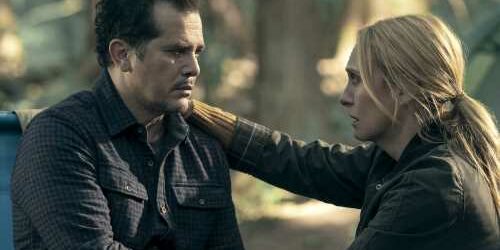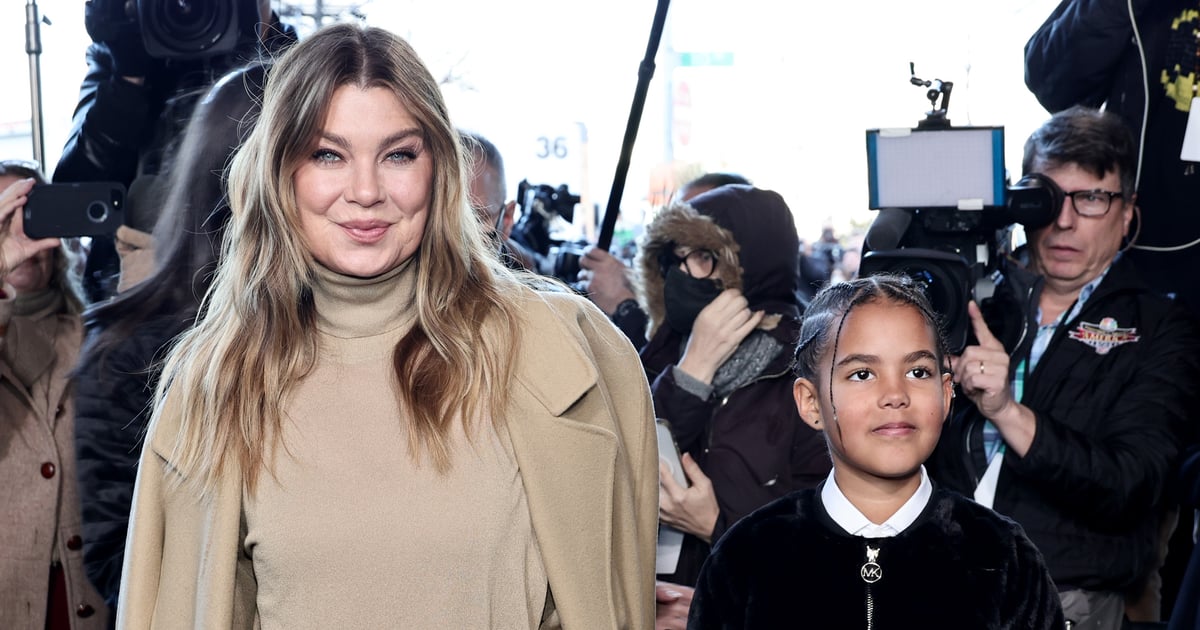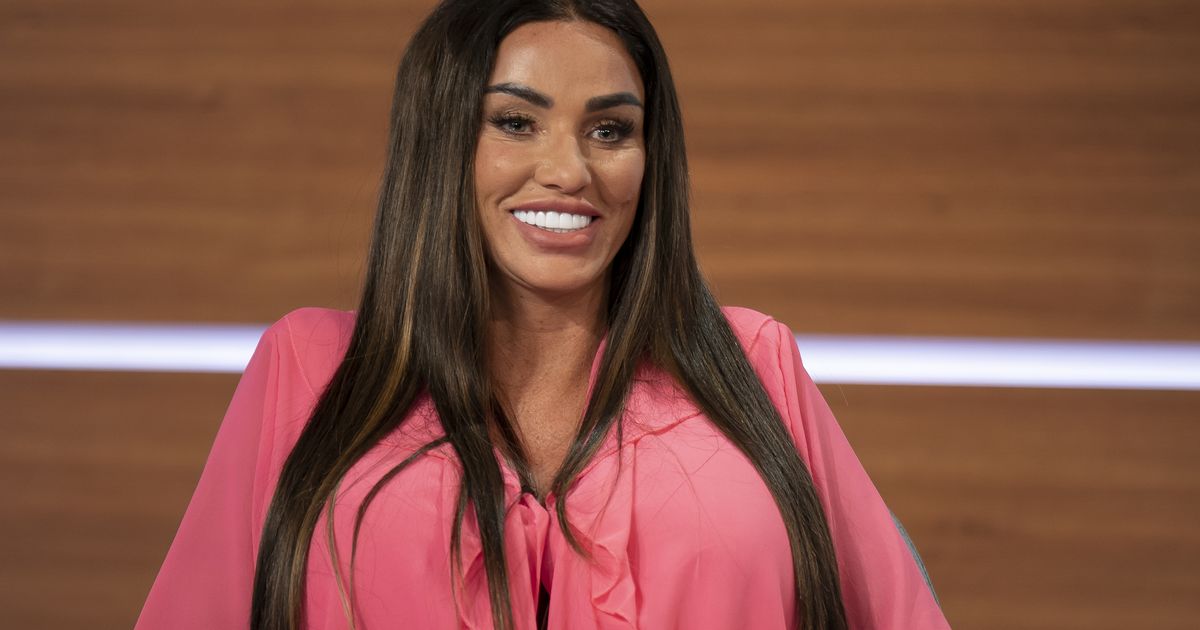In an episode of “The Power,” Prime Video’s series adaptation of Naomi Alderman’s acclaimed speculative novel, Roxy (Ria Zmitrowicz) tries to walk into a nightclub without flashing the ID that would reveal she’s underage. The swole sentinel manning the door tries to turn her away until Roxy creates a tiny lightning bolt between her thumb and index finger. The bouncer immediately backs down, now aware of the mortal threat Roxy poses, but she isn’t finished toying with him. “I’m not going in ‘til he smiles at me,” she says, goading him until he approximates joy. “There…you look nice when you smile.”
The cleverly gender-flipped scene represents “The Power” at its best, and there are thrilling moments throughout the show that justify the reportedly intense bidding war for the rights to Alderman’s novel. The book, in which teenage girls across the globe discover their ability to wield electricity, is cinematic in scope and concept. But it’s also overstuffed, teeming with more characters and ideas than can be successfully scaled for television. And so here is “The Power,” a decently executed and mostly faithful screen adaptation that undermines itself by demonstrating why a novel is the perfect format for this story.
Fans of the book will be relieved to find the text mostly intact, save for some minor cosmetic changes. Alderman, who developed the series alongside Raelle Tucker and Sarah Quintrell, sheared off the more literary elements of the novel, which is semi-epistolary and peppered with footnotes. But the majority of story beats survive the transition, along with most of the core characters —of which there are quite a few.
Margot Cleary-Lopez (Toni Collette) is still a mayor, though she now serves Seattle rather than an unspecified small town in Wisconsin. The selectively mute Allie (Halle Bush) is on the run from South Carolina after escaping her unsavory foster parents. In London, Roxy is the unacknowledged child of an infamous crime lord (Eddie Marsan) trying to right a wrong. Tunde (Toheeb Jimoh) is a Nigerian journalist trotting the globe to document the epochal shift. Tatiana (Zrinka Cvitešić), formerly a promising young gymnast, is now the long-suffering wife of the autocratic leader of an eastern European nation.
The first episode introduces the distant and disparate characters all at once, flitting from one storyline to another without the grace of the novel’s limited-perspective chapters. It’s a bit of a headache tracking all the characters’ journeys, especially since the series expands the ensemble beyond the essential characters. That’s especially the case with Margot, who gets a husband, Rob (John Leguizamo), and whose teenage daughter Jos (Auli’i Cravalho) gets a beefed-up role. Tatiana even reconnects with an estranged relative — a new character best left unrevealed — adding to the crowded tableau.
The new characters are hit or miss, and more of the latter than the former. Despite Leguizamo’s best efforts, Rob is the most useless of them, mostly serving as a gadfly to his overburdened wife and constantly criticizing her lack of work-life balance. When the show shifts to Margot and Rob’s domestic life, its momentum halts, in part due to Leguizamo and Collette’s wan chemistry. But almost none of the male characters manages to make an impression. Even Tunde, the only major male character in the book, struggles on the screen. He never rises above his functional role as the photojournalist providing in-world exposition and connecting distant characters. Josh Charles also goes to waste as the pompous Washington governor always locking horns with Margot.
“The Power” fares better when it focuses attention on the young girls suddenly imbued with superpowers. Granted, the awakening scenes quickly become repetitive, since the power is essentially the same in each girl. Each girl wields the power a bit differently though, as they realize their electricity offers both a chance to cut and a chance to cure. Allie’s arc is the most interesting as she wields her power to elevate herself to a folk hero, and eventually to a prophet. But even that story has trouble in television form, namely Allie’s inner-monologue (taken from the book, and voiced by Adina Porter) that quickly becomes distracting. Also of note is Cvitešić, who gives an arresting performance as Tatiana, though that storyline is mostly inert until the final installments. (Prime Video provided critics with eight installments of the nine-episode season.)
Despite its shortcomings, “The Power” remains a thought-provoking meditation on the power dynamics of gender, and how such a shift would upend society as we know it. Every panicked reaction is explored as the antagonist for most of the season is the patriarchy itself. Girls are rounded up and interned as governments start banning the use of the gift. An anonymous men’s rights activist riles up his misogynistic online following to retaliate now that they’re perceived as the weaker sex. And while the Season 1 antagonist is more or less the patriarchy itself, fans of the book know it will eventually examine how women become just as susceptible to being corrupted by power.
That’s ultimately the issue with “The Power” in its first season; it plays more like a prologue than a first chapter. With much of the source material unmined, the show watches like it’s already been renewed through Season 5. And hopefully it will, as its best days are still ahead of it. But Prime Video has a bad habit of axing thoughtful genre fare after a single season — so long, “Night Sky” and “Paper Girls” — so there’s no guarantee. “A Better Future is in Your Hands” goes the title of the premiere episode, and if “The Power” gets that future, it can reach its electrifying potential.
The first three episodes of “The Power” premiere on Prime Video on March 31, with new episodes available each Friday through the season finale on May 12.
Read More About:
Source: Read Full Article


